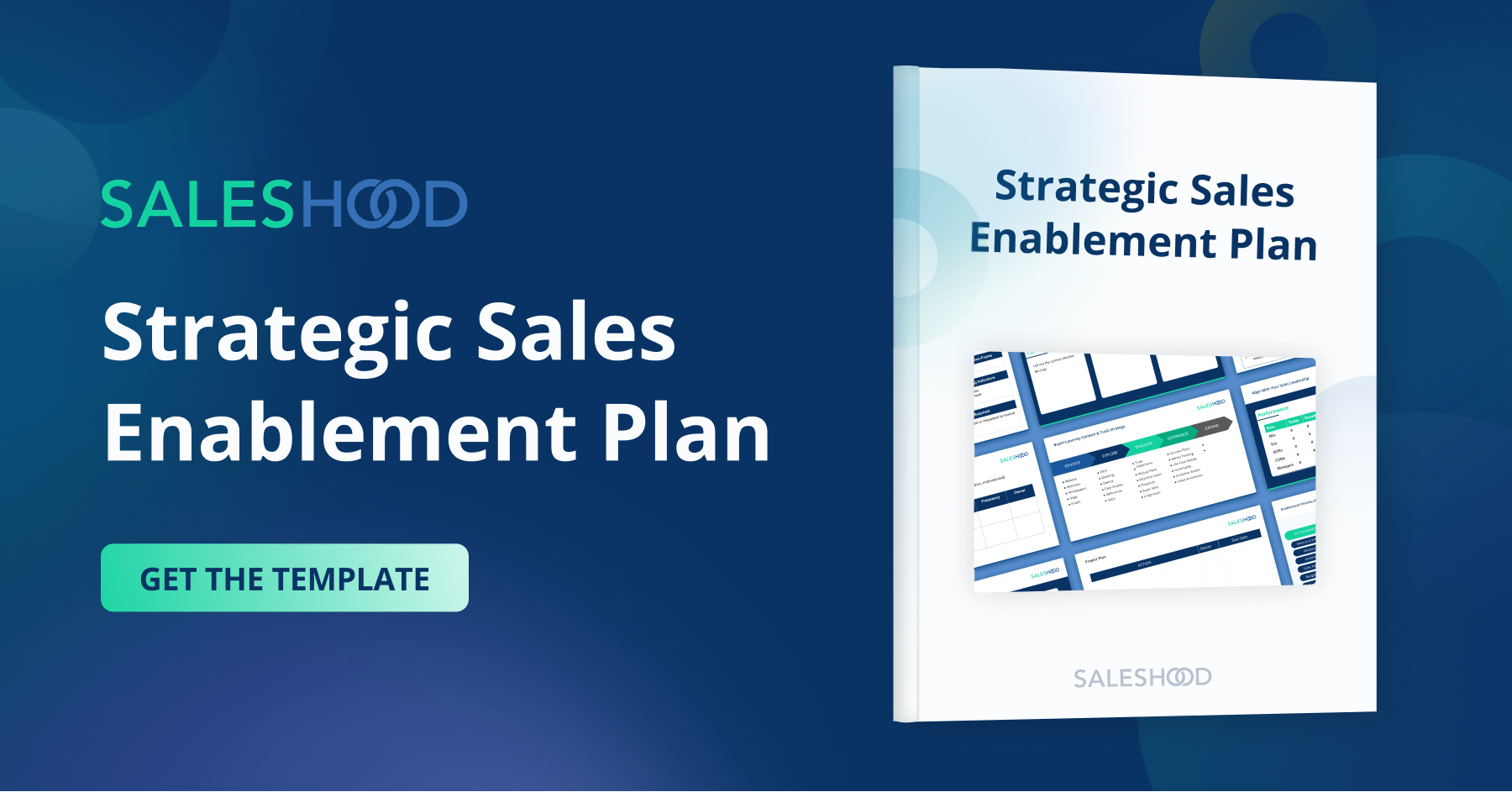It’s no secret that in order for your sales teams to be successful and make an impact, they need excellent training.
Sales has evolved over the years and will continue to evolve – we no longer carry a bag and rely on acting, smooth-talking, and pressure tactics.
Instead, modern sales performance depends on compassion, knowledge, problem-solving, and a myriad of other qualities that are best learned by actions and effective feedback.
The world of sales hasn’t only changed over the last few decades – everyone can agree that the past few months have been revolutionary when it comes to discovering how productive, creative (and potentially frustrating for in-house sales team leaders) an online work can be.
When businesses moved online, they discovered new tools, challenges, and opportunities that can make a business accelerate or fall behind, depending on priorities, vision and how these tools tackled.
Taking your in-person sales training curriculum and putting it online, or even combining what used to be a hybrid virtual and face-to-face sales coaching program into an all-online plan can be hard.
We’ve put together a short guide on running sales coaching programs online, and keeping your team energized and motivated.
What Does Effective Remote Sales Coaching Look Like?
Effective sales coaching always educates and motivates. Through a sales coaching program, you have a unique opportunity to steer your sales team in the right direction. The “steering” is accomplished not only by reinforcing goals and company culture but by role-playing, feedback, and presenting success stories they can build on.
Remote coaching doesn’t have to be confusing – with the right tools, it should look more like a video game or a pick-your-own-adventure activity for remote sales people.
Real-life Examples of Excellent Virtual Sales Coaching
Zenefits is a company that provides HR, payroll, time tracking and benefits solutions to small and mid-sized businesses. We are natural problem solvers, and our growth depends on responding to current ripples in the market, and in our clients’ needs. Obviously, the COVID-19 response is a huge part of this. What has become even more important is switching gears into “reassurance mode”, and helping our clients cope with a changing world by being there for them and getting down to the human level of client interaction.
In order to accomplish this, we needed to train our sales reps quickly while working remotely ourselves. This required an excellent sales coaching program that could be implemented remotely, quickly and effectively – SalesHood really came through for us and helped to set goals, do the work and have everyone on board.
Zenefits made virtual sales coaching work better in an online setting by making the “New Normal” playbook. Every successful business has to learn to adapt quickly. The days where just one steady business model worked for decades are gone – and the key to turning a strategy around lies in being able to get to your key people quickly, giving them the right kind of information at the right time and making sure they know how to implement any training materials as soon as they can.
This process is a consistent training back-and-forth: something I call the sales circle. It means that the process has to be repeated and create the foundation for progress.
- Learning
- Coaching
- Selling
This process really does come around full circle, because after you make successful sales, you go back to the drawing board and begin to learn from your success. (Or failure!) What worked? What didn’t? What can we do better?
While this should always be the case with any individual sales team member, the biggest benefits come when knowledge can be shared in a virtual training environment. Sales reps shouldn’t only learn from their own mistakes and successes but from other team members’.
One of the most important aspects of this is leadership buy-in, which I will talk about later. The Upper Sales Management has to get involved and personally align training to follow company best practices – it worked for us, and we wouldn’t be able to have the positive results we did without the high level buy-in and involvement.
In fact, cross-team knowledge should be available to sales reps – from the very front of the line to product creation. This is where online sales coaching, along with a custom online sales coaching platform wins – your whole sales team, including the executive team, and any management teams – are on the same page and aligned. Virtual classrooms make the playing field equal for participants, where cooperation, creativity, and engagement can be easily measured.
This makes Learning, Coaching, and Selling easy to plan – as with anything that’s measurable.
The “New Normal” Playbook
The “New Normal” playbook that Shadi mentions in one of our community training sessions is a great example of how we can do a training turn around and turn a confusing and frustrating time into a call to action, and a learning opportunity.
It also serves as a reminder that this is the time for sales reps to be compassionate, learn more about their clients, and what’s driving them, and be a force for good. Helping out, offering solutions, and doing so with the backing of real stories and real data is what we can use as an example for our own success.
The New Normal Playbook’s agenda looks like this:
- EQ
- Target Industries
- Messaging
- Objection Handling
- Promos
- The Importance of Well-Being
- Marketing Resources
This playbook was made through SalesHood’s sales enablement software in order to get the sales reps on the same page with the client’s needs.
Client Needs
One of the most important sales coaching tips is to keep your team up to speed with what your clients want and need – this is changing all the time even in more normal circumstances. The truth is, your client profile and your clients’ needs might be changing quickly as you read this very article. Your sales reps have to know when to switch their approach and how to change it from talking to clients who want to aggressively make money to clients who want to save money and cut costs in order to batten down the hatches and make their business safe in a storm.
This is why Zenefits made EQ the top of their list in the “New Normal” playbook.
What is EQ in Sales – Emotional Experience Practice in Sales Training
To backtrack a little, let’s explain what EQ in sales is, and why it’s so important when coaching a sales team successfully. Whether your team is doing B2B sales coaching or B2C, it’s critical to “feel out” the emotional experience – and in order to do that, your sales team has to know how to listen.
Most of us know how to make a good presentation, how to be knowledgeable and sound sure of ourselves – many of us have trained hard for it. But doing the opposite of talking also takes a lot of practice and coaching. Listening is hard. When you listen to someone emphatically, you:
- Show empathy
- Validate your clients’ concerns
- Listen actively
- Respond appropriately
- Understand what problems need to be addressed
If it might seem like you need some psychology training in order to be effective, it’s somewhat true. It’s all about stepping outside of yourself for a second and understanding not only your client but your own triggers and behaviors.
This will help you gain objective control of any conversation, and set the course by guiding your client based on their needs.
Learning EQ Skills Through Coaching
Emotions play an important part in sales success, and emotional awareness takes some great coaching to achieve. We don’t naturally come into a sales environment with empathy and knowledge. Sales managers are usually nervous, self-aware, and experience a range of emotions when talking to a client.
Effective sales coaching gives salespeople a mirror through which they can learn to see themselves and be graded on the emotions they bring to the table. This may start with something as simple as having enough social awareness to make the client feel important and valued.
Coaching is one of the most important tools for sales managers because it brings the aspect of reflection and critique – especially through exercises like role-playing and exploring the client’s motivations.
Leadership Buy-In: The Ultimate Secret to Successfully Training and Coaching Your Sales Team
Why is leadership buy-in so important? Can’t they just “talk amongst themselves” and gain valuable practice time this way? Having the sales managers be their own resource is an effective technique, but leadership is an absolutely essential part of this equation too.
Virtual sales coaching and online sales training programs offer executives and leaders the perfect opportunity to do what they’re supposed to excel at – leading and setting the tone for company best practices. Not to mention setting an example. A lot of executive-level team members forget this important fact: what they do matters because everyone is looking at them and how they work.
“Managers who invest in coaching and facilitate Huddles with their teams are having more success in quota attainment.”
– Shadi Bucklin
This can be interpreted as “leaders who lead are getting better results”. No wonder – the executive team at Zenefit got involved with getting the message across and had everyone be on board with their playbook through sales coaching software.
This included vigorous best practice sharing and role-playing, peer, and management feedback with an active audience. The Head of Sales at Zenefit gets personally involved and becomes the sales coach, guiding and offering help while leading coaching sessions and keeping sales reps on track.
When people see that they are valued and what they do is important to their leaders, they do better – this seems to work every time, not only when it comes to training but the overall effect on improving sales performance and team satisfaction.
Finding a Champion and Building on Your Foundation
Achieving executive buy-in is a crucial step to success – but not the only one. In order to get your message across and keep it strong throughout your whole organization, you need effective leaders to be able to train, coach, help and inspire your sales team.
This isn’t a paper-pusher or someone who is simply good at organizing and managing. Sales managers who are going to excel in the champion role need to believe in what they’re doing. This chosen sales manager needs to become an
- Early adopter
- Spokesperson
- Advocate
- Lead with example
The team needs to be comfortable with your champion and feel that they can easily approach them with any problem, question, or suggestion.
Training Your Trainers – Every Tier of Sales Training Counts
This leadership role will take some training – even if the candidate is predisposed to being a great leader, they will need great leadership and a coach on their own. Sales managers in this role need to have direct access to their superiors and the knowledge that they’re being listened to and valued.
Keeping your champions motivated is an important task to take into account. Of course, you are dealing with highly motivated individuals in the first place, and the job of keeping them excited should be fun and challenging. Some of the important points to remember are:
- Make your champion feel supported
- Have their back
- Provide them with the right tools and knowledge
- Be available to them and give them personal time
- Be ready to help
- Recognize their efforts
This kind of “paying attention” validates the team leaders and has a direct impact on sales performance. Virtual sales training is a team effort, and coaching is a trickle-down affair and requires constant communication, reassurance, and conversation.
Running the Gauntlet – Learning, Coaching & Selling
This is why a sales coaching strategy often resembles a never-ending circle of learning, coaching, selling, learning from the experiences, and turning that into effective coaching sessions before taking your experience back to the clients.
It’s a process that needs to be consistent – not repetitive. Just like a work out at the gym (remember those?) repeating the same thing over and over won’t necessarily get you the results you want – you have to compose a variety of training practices based on your needs and then later – based on your results.
Starting the sales training program remotely is like starting a flywheel – and when powered properly it will keep your engine running throughout the sales cycle and back through learning and coaching again.
Sales Coaching Tools & Techniques
When working online with any coaching program, you will need a reliable set of tools that your team can use. One of the most powerful tools you can have is a coaching template. A coaching template is a roadmap and will include several important factors:
- Executive-created playbook
- Well organized and searchable resources
- Best-practice guides
- SOPs
- Training templates
Even with a clear set of tools and guidelines, it’s easy to feel lost and alone, especially for new trainees. It’s important to create a sense of community within your team by hosting consistent meetings, check-ins, and have a well-established communication structure. The goal is to create a coaching structure that’s so easy and intuitive to follow that your sales managers feel comfortable enough to be creative.
Top to Bottom and Bottom to Top – Taking Everyone into Account in a Sales Coaching Program
Let’s talk a little bit more about how important communication can be in a virtual sales coaching program. Being remote when training and coaching mean that you’re missing some important cues that are usually used to gain important feedback and to make the process more personal.
Communication online is a little tricky, because you don’t get the benefit of seeing body language, facial expressions, and the small things we usually pay attention to when coaching and interacting with people. This is why SalesHood’s emphasis is on making sales enablement and coaching software not only collaborative and interactive but also helpful in keeping track of team member progress.
Making huddles, certifying people, keeping them involved, and in a constant development flux will draw them into the coaching program and make the fact that there is a screen between you less obvious.
The internet is sometimes seen as a paradox – on one hand, it allows people to communicate faster, better and throughout many different channels, but at the same time it makes communication seem not as personal and involved as in real life – as a result, people find it easy to become detached from the bigger “team” environment, and keeping people on track becomes a more severe problem for those who are practicing their skills online.
The Importance of Roleplaying, Feedback and Stories
This is why roleplaying becomes one of the most fun and interactive tools that your sales coaching team can use to get others not only stimulated and involved but also to get the creative juices flowing and provide a learning opportunity for others. Why is roleplaying so crucial for coaching and sales managers?
First of all, every sales coach will tell you that real-life situations are hard to learn by reading. There are some sales reps out there that love this part of coaching the most – especially when training and mentoring newbies. In a role-playing situation, it’s great to see how differently people will react to situations that you thought would go one way – but they instead end up going in a completely different direction.
As a coach, you have an opportunity to present sales managers and trainees with situations you’ve encountered yourself. These situations can be tough or require on the spot creative thinking. They will make your team think fast and react spontaneously – and then have the opportunity to sit back and access what they did right, what they did wrong, and what areas they need to work on.
Feedback from a senior coach is crucial at this point because it comes not as criticism but as valuable advice given from the perspective of someone who’s “been there” and “seen it all”. Coaching in this way can also open up great opportunities for the senior leaders to put their sales team back on track and in tune with the company’s best practices.
If a sales rep knows that they have a tendency to get off track, they are likely to watch out for that once the coaching session is over and they go out into the real world.
How to Arrange a Great Role-Playing Session
This might seem a no-brainer, but before you begin role-playing, make sure everyone knows each other. This might be a great opportunity for people to talk about their lives, hobbies, and interests. However, it’s often best to do it before the actual coaching session! There’s a time for everything, and starting off with the team already acquainted makes everyone more comfortable.
Some coaching specialists have a pre-game meeting with coffee, lunch, or breakfast to loosen up. This is a great idea in both in-person coaching sessions but it also makes virtual coaching much more comfortable and personal.
Another big plus of getting to know each other is that people who are comfortable in their team environment and with their coach are more likely to feel comfortable making mistakes and not taking feedback as criticism. After all, the point is to learn new skills and to learn new information – not to judge.
Before you begin, get your checklists ready:
- What do you hope to accomplish?
- What happened during the previous training session?
- What does your team need help with?
- Did your team members and managers email you with any questions that need to be addressed by the coach?
- What improved since the last coaching session?
- Does anyone need to be recognized personally for their hard work or results?
- Did I leave enough time for questions at the end of the exercise?
You should have a number of scenarios ready – this may include different product types and a number of different client personas. Remember that people gain a lot of insight not only from doing the role-playing themselves but by watching others and learning from their mistakes and their successes. Seeing how different situations can play out is an invaluable experience.
How Often Should Role-Playing Sessions Take Place?
A sales coach should take into account what they need to accomplish, the size of their team, and the range of their products. These types of sessions can be scheduled anywhere from a bi-weekly to a once-a-month event.
Final Thoughts and Tips
A lot of companies have been forced into an online and remote environment – and if you didn’t jump on the virtual bandwagon before, you pretty much have to now. Sales coaching is one of those things that brings your team together and educates managers and leaders alike. Having an excellent remote plan of attack will help you meet your goals quickly and what’s also important – it will help to integrate your sales reps to function as a team, bring in a competitive spirit and keep them on track with your company’s best practices.



